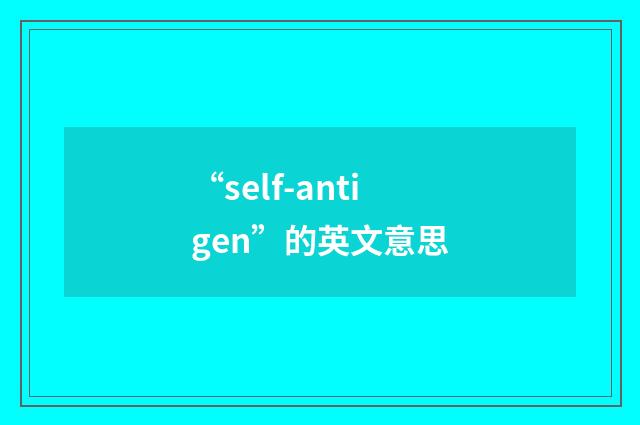| 单词 |
self-antigen |
| 释义 |
self-antigen, n. Immunol.|ˌsɛlfˈæntɪdʒən|
Also as two words.
[f. *self n. 4 c + antigen n.]
Any substance (usu. a protein) produced by an individual which can be treated under certain conditions as an antigen by that individual's immune system.
1965Ann. N.Y. Acad. Sci. CXXIV. 10 The reaction is against self-antigen which is not recognized as ‘self’ and is another example of immunocytes doing what they ‘know how to do’, even at the expense of a harmful reaction to the body. 1969Landy & Braun Immunol. Tolerance 189 The scheme shown..could easily explain the development of natural non-responsiveness to self antigens. 1971W. Braun in McGraw–Hill Yearbk. Sci. & Technol. 105/1 The normal process of development of nonresponsiveness (tolerance) to self-antigens might be associated with an early maturation of lymphocytic cells. 1979Nature 25 Jan. 330/2 The clonal selection theory put forward by Burnet in 1959..proposed that all lymphocytes potentially able to make antibodies against self antigens were eliminated if they met them during foetal life. 1984Tighe & Davies Pathology (ed. 4) iv. 32 The term ‘autoimmunity’ is used to describe the situation in which the specific immune response is directed at a self-antigen. |

英语词典包含277258条英英释义在线翻译词条,基本涵盖了全部常用单词的英英翻译及用法,是英语学习的有利工具。
相关内容:
相关热词搜索:selfantigen英英词典英英释义英语词汇意思用法释义英语
